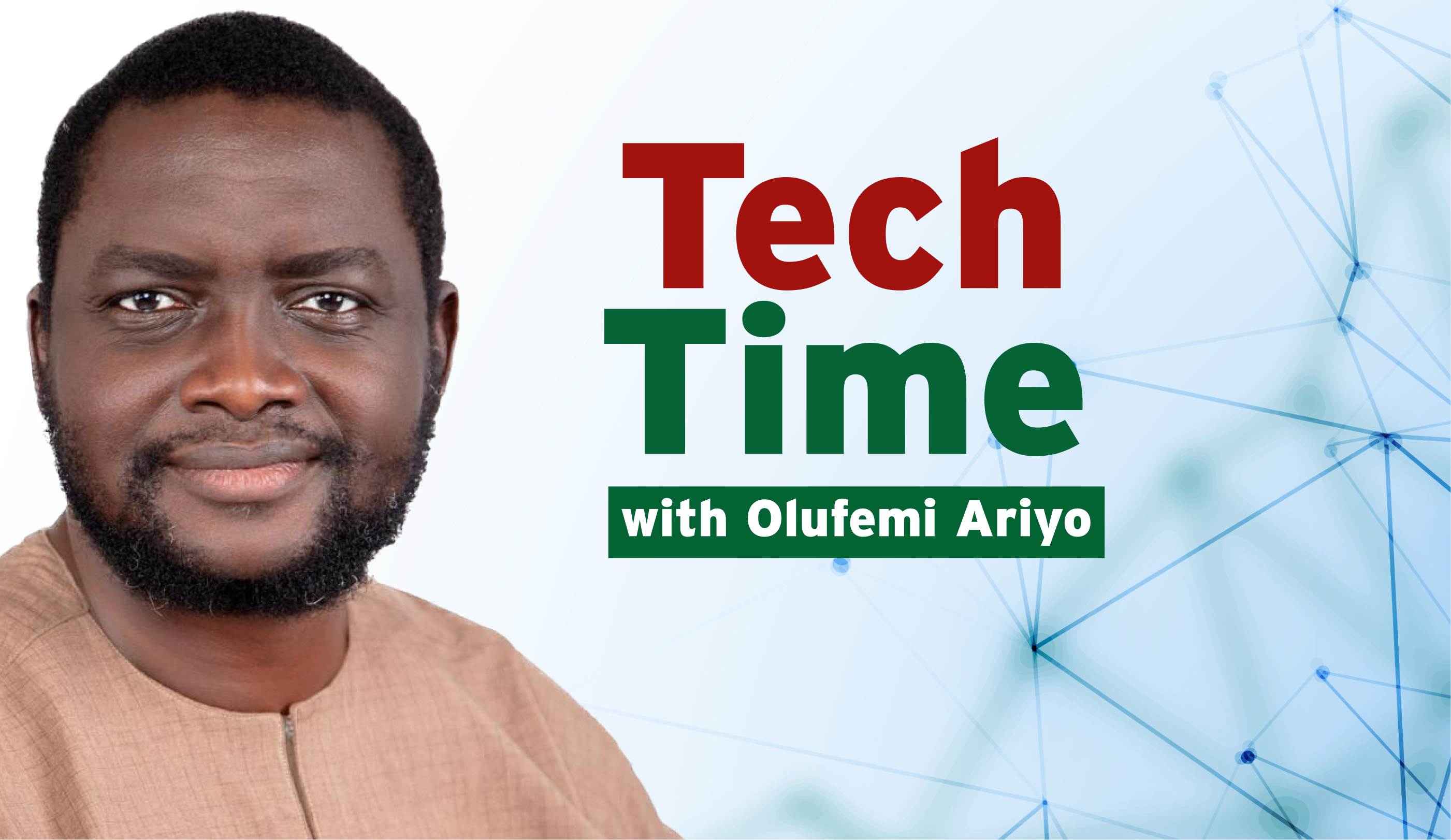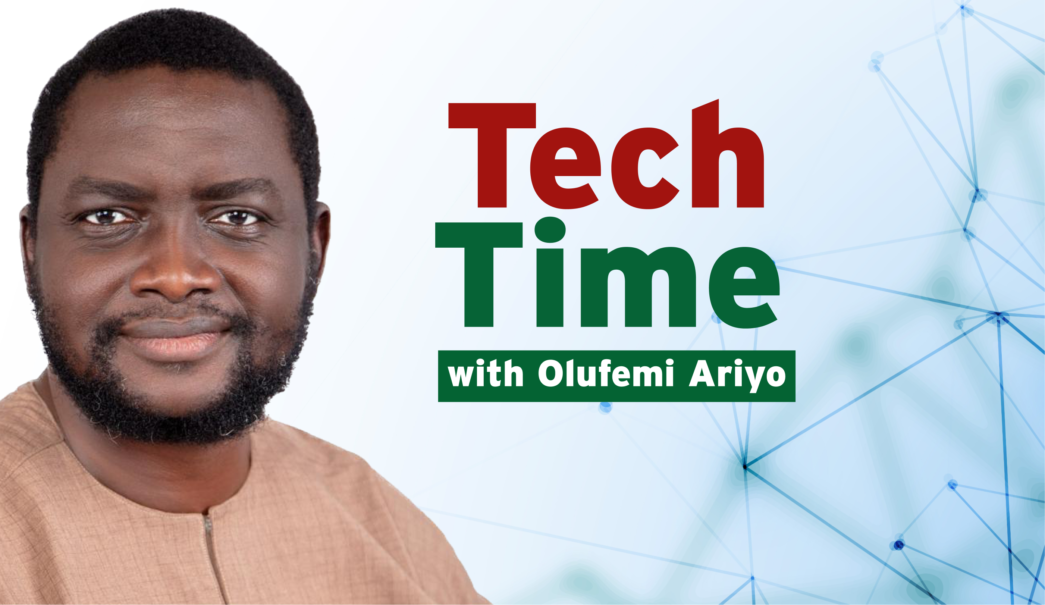“The trouble with Nigeria is simply and squarely a failure of leadership,” says Chinua Achebe in his book, The Trouble with Nigeria (1983). Over four decades after Achebe wrote those words, they remain disturbingly true. As Nigeria marks 65 years of independence, this milestone offers not just a moment of celebration—but a sobering reminder of how far we have strayed from our founding ideals. Nigeria, a country endowed with vast natural wealth (including crude oil, natural gas, fertile land, and solid minerals) continues to punch far below its weight. With a population of 237.5 million (according to Worldometer’s elaboration of United Nations data – the largest in Africa and one of the youngest in the world), Nigeria should be a continental powerhouse.
Instead, it lingers at the bottom of global development indices. At the root of this paradox lies a painful truth: unpatriotic leadership. Unpatriotic leadership is a brand of governance where those in authority prioritise personal gain, ethnic or regional loyalties, and even foreign interests over national progress. These are leaders who do not govern with a sense of duty or national vision. Instead, they plunder public resources, manipulate state institutions, and divide citizens along tribal and religious lines to maintain control. Their allegiance is not to the constitution or the people, but to themselves, their cronies, or external powers that benefit from Nigeria’s dysfunction.
Contrast this with patriotic leadership, which is rooted in integrity, empathy, service, and a long-term vision for national development. Patriotic leaders build rather than loot; they unite rather than divide; they sacrifice rather than exploit. Nigeria has occasionally seen flashes of such leadership (in brief reformist periods or during national emergencies) but these moments are rare and often short-lived, drowned out by the prevailing political culture of self-interest with measurable damage. According to the National Bureau of Statistics (NBS), over 133 million Nigerians (more than 60% of the population) live in multidimensional poverty, lacking access to health, education, housing, or clean water. Meanwhile, Transparency International consistently ranks Nigeria among the most corrupt countries in the world, sitting at Rank 140 out of 180 countries in the 2024 Corruption Perceptions Index (scoring 26 out of 100 points, which is 17 points below the global average). Nuhu Ribadu, former head of Nigeria’s Economic and Financial Crimes Commission (EFCC), estimates that more than $400 billion has been misappropriated from Nigeria’s public treasury since 1960.
However, the greatest tragedy is not the stolen money or the crumbling infrastructure, but the squandered potential — the millions of talented, creative, and hardworking Nigerians who are either trapped in poverty or forced to flee abroad in search of dignity and opportunity. Nigeria’s crisis is not rooted in a lack of resources, ideas, or people, but rooted in a betrayal (repeated and deliberate) by those entrusted to lead. The cost of this betrayal goes far beyond the balance sheet: it is felt in every school without books, every hospital without medicine, and every family grieving a loved one lost to violence, hunger, or hopelessness. This is the true cost of unpatriotic leadership; and it is time to confront it.
Advertisement
(A) The Nature of Unpatriotic Leadership
Unpatriotic leadership in Nigeria is not abstract but painfully real, visible in everyday life, and experienced by millions of citizens on a daily basis. It manifests not just in policies, but in the priorities, decisions, and lifestyles of those elected or appointed to serve. These leaders, by their actions and inactions, consistently send a clear message: the wellbeing of the Nigerian people is not their concern.
- Leaders Looting Public Funds While Citizens Starve
One of the most blatant signs of unpatriotic leadership is massive corruption. Public officials embezzle funds meant for hospitals, schools, roads, and social welfare programs. Meanwhile, citizens are left to beg, borrow, or die in poverty. In 2021, a former Accountant-General of the Federation was accused of stealing ₦109 billion — enough to build hundreds of schools or pay thousands of doctors and teachers. In contrast, ordinary Nigerians struggle to afford basic food items. A bag of rice now costs more than the monthly minimum wage, forcing many families to eat just once a day—not by choice, but out of necessity.. While politicians host lavish parties and travel in convoys of SUVs, the average Nigerian is asking how to survive till the end of the week.
Advertisement
- Politicians Flying Abroad for Healthcare and Education While Local Systems Collapse
Another clear sign of unpatriotic leadership is the abandonment of local systems. Nigeria’s leaders routinely travel abroad for medical treatment (from minor ailments to major surgeries) while public hospitals remain underfunded, understaffed, and poorly equipped. For example, in 2017, the late Muhammadu Buhari, who was then Nigeria’s president, spent over 100 days in the United Kingdom receiving medical treatment, while back home, Nigerian doctors went on strike over unpaid salaries and a chronic lack of medical equipment. In the same vein, most top officials send their children abroad for university degrees, while public universities in Nigeria frequently shut down due to ASUU strikes, poor funding, and deteriorating infrastructure. If our leaders truly believed in the systems they oversee, they would use them. But they don’t — because their loyalty is not to Nigeria’s growth, but to their own comfort.
- Ethnic and Religious Favouritism Over National Unity
Unpatriotic leadership thrives on division, as many leaders weaponise ethnicity and religion instead of promoting unity and inclusion to consolidate their grip on power. They appoint only those from their ethnic group, push policies that favour their region, or stir up religious sentiments to distract from their failures. This favouritism breeds resentment, fuels insecurity, and breaks the fragile trust needed for a diverse country like Nigeria to thrive. It is why a qualified citizen from one part of the country can be denied opportunity, while a less qualified person from another region gets promoted — not based on merit, but on identity. In a truly patriotic system, leadership builds bridges, not burns them — yet Nigeria’s political class often does the opposite, using division to maintain power even as the nation suffers.
- Policies That Benefit the Elites but Hurt the Average Nigerian
Many government policies in Nigeria are designed to serve the rich and punish the poor. Take the removal of fuel subsidies without adequate social safety nets: while the policy may make economic sense on paper, in reality, it triggered a steep rise in transportation, food, and living costs — crushing millions of Nigerians already on the edge.
Meanwhile, lawmakers continue to receive gigantic salaries and allowances — with estimates suggesting they are among the highest paid legislators in the world. In 2023, the government proposed buying luxury SUVs for senators worth over ₦160 million each, at a time when many states could not pay basic salaries or pensioners. These decisions make it clear: the system is not broken by accident but built to serve a few, while the rest are left to survive on scraps.
Advertisement
Unpatriotic leadership is not merely a failure of performance but a failure of allegiance, of conscience, and of vision. It is the daily, deliberate choice to exploit a country rather than build it. And until Nigeria confronts this mindset, true progress will remain out of reach.
(B) The Economic Cost of Unpatriotic Leadership
The Nigerian economy is not poor by nature but has been impoverished by design. The real tragedy is not that the nation lacks money, but that what it has is consistently mismanaged, misused, or outright stolen. Unpatriotic leadership has drained the country’s economic lifeblood, leaving behind crumbling infrastructure, a failing currency, mass unemployment, and a population trapped in survival mode.
- Looted Wealth, Empty Treasuries
As earlier mentioned, the over $400 billion mismanaged from Nigeria’s public funds since independence could have built thousands of hospitals, funded universal education, and electrified entire regions. Instead, these funds have ended up in private accounts in Dubai, London, Switzerland, and offshore tax havens — while millions of Nigerians go to bed hungry. The impact is visible everywhere ranging from pothole-ridden roads in Nigerian cities to government hospitals where patients are forced to buy their own syringes. In rural areas, many communities still rely on streams for drinking water. This is not because Nigeria is poor but because its wealth has been systematically stolen or squandered.
Advertisement
- Unemployment and Underdevelopment
Unpatriotic leaders neglect long-term economic planning, focusing instead on short-term gains and oil rents rather than building industries that create jobs. Based on recent estimates, Nigeria’s unemployment rate rose to 37.7% in 2022, with projections suggesting it could climb further to 40.6% in 2023, while youth unemployment remains disproportionately high. Thousands of university graduates roam the streets with CVs, while political cronies are handed inflated contracts with no accountability.
The informal sector (comprised of hawkers, bike riders, and small shop owners) now carries the economy not due to booming entrepreneurship, but because formal employment is a luxury, forcing many Nigerians to hustle out of desperation rather than passion.
Advertisement
- A Failing Currency and Rising Cost of Living
The Naira has suffered repeated devaluations, not simply due to global economic trends, but also because of irresponsible fiscal policies and corrupt foreign exchange practices. Multiple exchange rates, mismanaged subsidies, and a lack of transparency at the Central Bank have shaken investor confidence and triggered capital flight. As the Naira weakens, everything becomes more expensive — from bread to petrol. Inflation hit over 25% in 2023, meaning salaries lost their value overnight. Civil servants earning ₦70,000 (approx. $48) minimum wage found themselves unable to afford basic necessities, while political elites increased their own allowances and continued to live in obscene luxury.
- Infrastructure that Never Gets Finished
In many cases, projects are launched with great fanfare but never completed. Budgets are padded, funds are released, but nothing is delivered. Airports remain half-built. Roads are repaired every year but never truly fixed. Power projects consume billions, yet Nigerians still rely on generators. This pattern (of starting without finishing) is a hallmark of unpatriotic leadership. Leaders care more about headline announcements than actual outcomes. Their goal is often to pocket funds through inflated contracts, not to solve real problems. The economic cost of unpatriotic leadership is not merely about figures and statistics — it is about every Nigerian mother choosing between food and medicine, every graduate applying for the same job 500 others applied for, and every child learning under a leaking roof. It is the deliberate sabotage of national prosperity — and every citizen, whether rich or poor, eventually pays the price.
Advertisement
(C) The Human Cost of Unpatriotic Leadership
When leadership fails, it is the people who bleed — not the politicians. Behind every bad policy, stolen fund, or selfish decision lies a human story: of a mother who lost her child in a dysfunctional hospital, of a graduate trapped in joblessness, of a child out of school, or a young man gunned down by insecurity. The human cost of unpatriotic leadership in Nigeria is deep, generational, and devastating.
Advertisement
- Lives Lost to a Broken Healthcare System
Every year, thousands of Nigerians die from preventable and treatable illnesses — malaria, typhoid, pregnancy complications, asthma attacks — not because cures don’t exist, but because the health system has been abandoned. We just lost Sommie (Somtochukwu Maduagwu) because Nigeria happened to her due to the unpatriotic decisions of those who could have saved her life (and the neglects of those who should have put working systems in place – followers and leaders). Public hospitals are overcrowded, underfunded, and poorly equipped. Many lack even basic supplies like oxygen and gloves. Meanwhile, political elites fly to the UK, the US, or Dubai for routine check-ups, while millions of citizens are forced to pray and hope for miracles. According to the World Health Organisation, Nigeria accounts for 20% of global maternal deaths, and life expectancy is just about 55 years — one of the lowest in the world.
Compare this with Singapore, a country that gained independence in 1965 — just five years after Nigeria. Today, Singapore has one of the most efficient healthcare systems globally, and a life expectancy of over 84 years. Why? Because its leaders made strategic investments in public health, chose competence over corruption, and placed the people’s welfare above personal luxury.
- A Broken Education System That Traps the Poor
In Nigeria, public education is in a state of disrepair. Children sit on bare floors, share outdated textbooks, or drop out entirely due to poverty. Teachers are underpaid and demoralised. Higher institutions are frequently shut down due to ASUU strikes. An entire generation is being raised with diminished hope and weakened tools — expected to compete in a global economy with no functional education system behind them.
In contrast, Singapore made education a top national priority. Every child is guaranteed high-quality public education, and teachers are among the best paid and most respected professionals in the country. As a result, Singapore now ranks among the top countries in math, science, and literacy worldwide.
- Insecurity and the Collapse of Safety
The collapse of patriotism in leadership has also led to a collapse of security. Armed banditry, kidnapping, terrorism, and communal clashes have turned parts of Nigeria into war zones. Citizens pay for their own security (hiring vigilantes, building high fences, or relocating abroad) while those in power move with convoys of armed escorts. Tens of thousands have died in violent attacks since 2009. Thousands more have been displaced, orphaned, or traumatised. In many rural communities, the Nigerian state is non-existent.
Compare this again with Singapore, a country with virtually zero tolerance for crime, where a robust police and judicial system ensures safety and accountability. This was not accidental — it was built by leaders who saw security as a non-negotiable public good, not a bargaining chip.
- Brain Drain and the “Japa” Syndrome
Today, one of Nigeria’s most devastating losses is its people. This includes doctors and nurses, software engineers, teachers, and academics — tens of thousands of talented Nigerians are leaving the country each year in search of opportunities elsewhere. This mass emigration (now popularised as the “Japa syndrome”) is a direct result of a country where effort does not guarantee reward, and merit is often crushed under nepotism and corruption.
Meanwhile, Singapore retained and nurtured its talent by building an ecosystem where bright minds could thrive rather than flee. Today, it attracts global talent, while Nigeria exports it involuntarily.
The human cost of unpatriotic leadership is not solely economic — it is emotional, psychological, and spiritual. It is the normalisation of suffering, the dimming of dreams, and the destruction of trust between the people and their leaders. Nigerians are not lazy or cursed but have simply been failed, time and again, by those who were meant to fight for them.
(D) The National Identity Crisis
One of the most insidious consequences of unpatriotic leadership in Nigeria is the deep erosion of national identity. When leaders repeatedly choose self over country, the result is not just poverty or decaying infrastructure, but a nation where citizens lose faith in the very idea of the country itself. In Nigeria today, national pride is on life support. Ask the average young Nigerian, “Do you believe in Nigeria?” and the answer is often a bitter laugh, a shrug, or a question in return: “Which Nigeria?”
A Nation Divided by Leadership
Decades of leadership driven by ethnic favouritism, religious bias, and political short-sightedness have fragmented Nigeria into competing tribes, not united citizens. Many people feel more allegiance to their ethnic group or region than to the country. This is not accidental but the direct outcome of leaders who have failed to build a shared national vision. Politicians fan the flames of division to win elections, then ignore the promises of unity once in power. As a result, citizens now ask: “Where are you from?” before they ask, “What can you do?” Merit is replaced by identity and unity by suspicion.
Compare this with China, despite having 56 ethnic groups, has cultivated a strong sense of national identity through consistent leadership that prioritises national pride, economic development, and long-term vision. The Communist Party may be authoritarian, but it has kept China first — investing in massive infrastructure, education, manufacturing, and technology, while projecting China’s strength globally. Over the past 40 years, over 800 million Chinese citizens were lifted out of poverty — the largest poverty-reduction campaign in human history. This success was not because Chinese people were better or luckier, but because their leaders committed to building a nation, not looting one.
The Nation Feels Like a Lie in Nigeria
The average citizen has been taught to believe in the country, but has been given no reason to.
- They pay taxes, but get no services.
- They vote, but the results are manipulated.
- They serve in NYSC, but struggle to find jobs afterward.
- They sing the anthem, but feel no real protection or investment from the state.
Over time, this disconnect breeds a deep cynicism and hopelessness. Patriotism becomes a joke. National symbols become hollow. And worst of all, young people begin to see Nigeria not as a home to build, but as a place to escape.
Identity Exported not Celebrated
While countries like China promote their culture, products, and values globally (from Chinese technology to traditional medicine to Confucian institutes), Nigeria struggles to even protect its own citizens abroad. Instead of exporting a powerful identity, we export skilled labor, victims of trafficking, and asylum seekers. Nigerian passports are routinely disrespected. International embassies process visas with suspicion. All because our leaders have failed to build a country worth respecting.
A nation without a shared identity is a nation perpetually in crisis. And in Nigeria, that crisis is real. It lives in the mind of every graduate asking, “Why should I stay?” Every father saying, “This country will kill you.” Every teenager dreaming of “japa” as the only path to dignity. I was speaking with an entertainer who moved to the United States only about a year ago (now 51 years); he moved me to write this piece when he said his children asked him after only two days of being in the United States, “Daddy, why weren’t we born here?”
Until leaders rise who see Nigeria as more than a feeding trough (who treat the flag not as decoration but as a promise), the national identity will continue to erode. A patriotic leadership builds not just roads and schools, but a sense of belonging and belief. And that, more than oil or money, is what Nigeria desperately needs.
(E) Cultural Decay: When Corruption Becomes a Way of Life
The consequences of unpatriotic leadership in Nigeria extend far beyond the economy or physical infrastructure. Over time, repeated betrayal by leaders breeds something even more dangerous: cultural decay. A slow, corrosive breakdown of values, where corruption becomes normal, dishonesty is rewarded, and mediocrity is accepted as the national standard. In Nigeria today, the problem is no longer just that leaders are corrupt — it is that the entire system is designed to make corruption a survival strategy. And when people no longer believe that honesty pays, society begins to rot from within.
“Smartness” Over Integrity
In many parts of Nigeria, being “smart” now means knowing how to bend the rules: how to game the system, cut corners, inflate contracts, or manipulate others to get ahead. The honest worker is mocked. The corrupt official is envied. The youth are taught (not in classrooms, but through lived experience) that it is not hard work or talent that brings success, but connections, bribes, and luck. This cultural shift did not happen overnight. It is the direct legacy of unpatriotic leadership — a political class that preaches sacrifice while hoarding wealth, that calls for unity while practicing nepotism, and that breaks every rule while expecting citizens to follow the law.
Compare this with Finland, where leadership shapes a culture of Trust. Finland is not a large or resource-rich country, but has a small population, a cold climate, and no oil. But what it lacks in size, it has made up for in leadership integrity and cultural values.
In Finland:
- Corruption is nearly non-existent.
- Public officials are held to extremely high ethical standards.
- Transparency is the norm — citizens can access public budgets, government salaries, and political donations.
- Leaders lead by example. Finland’s Prime Minister can ride a bicycle to work and still command national respect.
As a result, Finland has one of the highest levels of public trust in government in the world. Its education system is ranked among the best, not because of huge funding, but because of a national culture that values honesty, competence, and accountability.
This didn’t happen by chance. It was intentionally built over decades, starting with leadership that viewed public service not as an opportunity for wealth, but as a duty of care.
Nigeria’s “Anything Goes” Syndrome
In Nigeria, we have witnessed the opposite trajectory — where corruption has been normalised into daily life, from bribing police officers with ₦1000 notes to paying for jobs, admission, or even justice. Many Nigerians no longer expect fairness — they only hope to “know someone” who can help them jump the queue. This rot extends into:
- Education: “Sorting” for grades is common in many universities.
- Public service: Ghost workers inflate salary bills while real workers go unpaid.
- Religious spaces: Some churches and mosques now platform corrupt leaders instead of holding them accountable — further reinforcing that morality has taken a back seat to power and wealth.
Unpatriotic leadership has created a society where the line between right and wrong is blurred — and where the next generation is growing up with distorted values.
Culture Reflects Leadership
Culture is not just what people do but what they believe is acceptable. And in Nigeria, unpatriotic leadership has taught citizens that anything goes, as long as you win. That principle is cultural poison, and the longer it remains unchallenged, the harder it becomes to rebuild a nation founded on trust, fairness, and merit.
Contrast this with Finland, where civic responsibility is taught, modelled, and enforced, starting from leadership. There, integrity is not aspirational but expected. In Nigeria, we must ask: what kind of society are our leaders creating? Because if corruption becomes culture, no amount of economic growth or policy reform will save us.
(F) How to Recognise Patriotic Leadership
After decades of disappointment, it is easy for Nigerians to become cynical — to believe that all leaders are the same, that no one in power truly cares, and that integrity in public service is a myth. But history (both within Nigeria and across the world) shows us that patriotic leadership is real, and it is possible. Patriotic leaders may be rare, but they can be recognised — not by their speeches or propaganda, but by their character, priorities, and track record. Here is how to spot them:
- They Put People Before Privilege
Patriotic leaders sacrifice personal comfort for public good. They do not enrich themselves while citizens suffer. They understand that public office is a calling, not a business venture. For example, in the early 2000s, Dora Akunyili, as Director-General of NAFDAC, risked her life to fight fake drug syndicates. She resisted bribes and death threats because she believed Nigerian lives mattered more than political safety.
- They Lead by Example
True leaders don’t just talk — they model the values they expect from others. They live modestly, show up to work, and obey the same laws they enforce. For instance, in Uruguay, former president José Mujica famously refused the presidential mansion, donated 90% of his salary to charity, and drove a 1987 Volkswagen Beetle. He gained global admiration not for wealth, but for humility and integrity. In contrast, Nigeria’s political elite often live in gated opulence while the people they govern walk miles to fetch water or die in underfunded hospitals.
- They Build Not Just Talk
Patriotic leaders focus on results, not rhetoric. They invest in long-term development — roads that last, schools that teach, reforms that outlive them. An example is seen in how Singapore’s Lee Kuan Yew took a struggling post-colonial nation and turned it into one of the most advanced economies in the world — not through oil or luck, but through clear vision, zero tolerance for corruption, and long-term planning.
Nigeria, too, saw glimpses of this in Obafemi Awolowo, who as Premier of Western Nigeria implemented free education, established universities, and prioritised the common man.
- They Unite Not Divide
Patriotic leaders rise above ethnic, religious, or regional sentiments. They treat every citizen equally — regardless of where they come from or who they voted for. A leader who hires only people from their tribe, or favours one region in appointments and projects, is not patriotic but nepotistic, running a private empire, not a national government. Leaders like Nelson Mandela in South Africa built nations by promoting reconciliation and inclusion, not revenge or favouritism.
- They Defend Institutions Not Just Their Image
Patriotic leaders strengthen democratic institutions (the judiciary, the press, the civil service) because they know strong systems outlast individuals. Unpatriotic leaders, by contrast, manipulate courts, intimidate journalists, and bend the rules to serve their ambition. They see themselves as above the law. In Finland, ministers resign over ethical breaches, even if they are legal but morally questionable. In Nigeria, ministers cling to office after proven scandals, and often return through the back door as “special advisers.”
- They Inspire Hope Not Fear
Patriotic leadership restores belief. Even in hard times, people follow such leaders because they feel seen, heard, and protected. They don’t need propaganda — their actions speak for them. A patriotic leader leaves behind not just projects, but a legacy of trust. Citizens remember them as those who cared, who tried, and who made it okay to believe again.
The Test Is Simple: Who Benefits First?
If a leader’s first instinct is to protect themselves, their family, their allies — at the expense of the people — then they are not patriotic.
But if they think “How does this decision impact the average Nigerian?” and are willing to suffer political loss for public gain, then that is a leader worth following.
In Nigeria’s future, the demand for patriotic leadership must become non-negotiable. It is not enough to ask who is popular, rich, or well-connected. We must ask:
- Who has served selflessly before?
- Who has a record of sacrifice?
- Who will act with courage when no one is watching?
Because only such leaders can rebuild this broken house we call Nigeria.
(G) Leveraging Technology to Demand and Track Patriotism in Leadership
Patriotism can no longer remain a vague ideal—it must be measurable, visible, and enforceable. In today’s digital age, technology provides powerful tools to hold leaders accountable, amplify citizen voices, and reward integrity in public service. If patriotism is what Nigeria needs, technology is how we can demand, sustain, and celebrate it.
- Transparency Dashboards (Public Office Scorecards)
Create an open platform where citizens can easily track:
- Government budget allocations and real-time spending (e.g., via APIs from the Budget Office and Ministry of Finance).
- Progress updates on infrastructure projects like roads, schools, and hospitals.
- Appointment diversity by ethnicity, gender, religion, and qualifications.
- Voting records on patriotic versus self-serving legislation.
For example:
- Did this senator vote to increase their own salary?
- Did this governor appoint officials exclusively from one tribe?
Citizens could upvote or downvote actions to generate a “Patriotism Score” that reflects leadership integrity.
- Geo-tagged Service Delivery Audits
Use GPS and crowdsourced data to verify the delivery and quality of government projects:
- Track locations and progress of federal and state initiatives.
- Allow citizens to upload photos, videos, and reviews confirming or challenging official claims.
Example: An app enabling users to confirm if a “completed” road project truly exists or is a phantom.
Public Service Behavior Tracker
Monitor leadership behavior that signals patriotism or its absence using AI and public data:
- Frequency of public officials using Nigerian hospitals and schools.
- Compliance with asset declaration laws.
- Responsiveness to crises versus fleeing or avoiding responsibility.
Example: Flagging officials who received public funds but fled during the COVID-19 pandemic or failed to deliver promised projects on time.
Citizen Whistleblower and Feedback Portals
Deploy anonymous, secure platforms (e.g., Signal or blockchain-based systems) to:
- Enable citizens and civil servants to report unpatriotic behavior like ethnic favouritism, corruption, or ghost workers.
- Submit verifiable evidence audited by networks of journalists and civic tech experts.
Ethical AI in National Policy Monitoring
Apply AI tools to:
- Analyse speeches, policies, and bills for national bias versus ethnic or religious favouritism.
- Track social media trends to gauge public sentiment on patriotic leadership performance.
Example: Flag policies that disproportionately impact one region for further review.
Sample Tools or Ideas to Build
| Tool | Purpose | Tech Stack Suggestion |
| NaijaPatriot App | Score public officials based on patriotism metrics. | React Native + Firebase + Blockchain for reports |
| OpenNigeria Dashboard | Real-time budget and project tracking by state/LGA. | Web dashboard with API integrations (BudgIT, NBS) |
| Japa Index | Measures national sentiment and migration desire. | AI/NLP + Social Media APIs |
| PatriotBot | A WhatsApp/Telegram chatbot to teach and quiz on patriotic behavior. | GPT API + Twilio |
| PatriotWatch | Community watchdog platform to report and rate leadership actions. | CivicTech + Blockchain |
Examples of Where This Already Works
- BudgIT Nigeria: Tracks national budgets and releases citizen-friendly infographics.
- ng: Citizens monitor constituency projects in their communities.
- Code for Africa: Builds tools that monitor government actions and foster transparency.
Deeper: Could We Create a “Patriotism Index”?
Yes, we could design a “Patriotism Index” for public officials or political parties, based on factors like:
- Service delivery record.
- Ethnic/religious inclusion.
- Spending transparency.
- Use of local vs. foreign systems (schools, hospitals).
- Crisis responsiveness.
- Asset declaration and lifestyle audit.
Each leader can be scored from 0–100, visible to all, and updated quarterly. For example, Governor X: Patriotism Score: 82/100 (Built public schools in 3 senatorial zones; Declared assets; and Appointed only people from his ethnic group)
How Citizens Can Engage
- Use social media to amplify patriotism scores.
- Create reward systems (awards, grants, visibility) for high-performing leaders.
- Demand transparency as a precondition for votes.
- Partner with civic tech organisations to scale tools nationally.
“You can’t manage what you don’t measure.” Nigeria’s leadership failure persists partly because there is no real-time, people-powered feedback loop. Technology can fix that. It can help name and shame the unpatriotic, but also celebrate and support the patriotic — creating a new culture where integrity is visible, rewarded, and expected. Ultimately, patriotic leadership must become the standard — not the exception. And through civic technology, data transparency, and digital accountability, Nigerians now have the tools to make that possible. The next step is collective will.
Conclusion: A Call to National Responsibility
Nigeria’s story is not doomed — despite the pain, poverty, and betrayal, its people remain some of the most resilient, talented, and hopeful on earth; but resilience and hope alone are not enough. Change will only come when leadership — and followership — are redefined around patriotism, integrity, and justice. The true cost of unpatriotic leadership is already around us — in our broken hospitals, failing schools, empty pockets, and fractured identities. But the greater cost may still lie ahead, if Nigerians continue to allow the wrong people to lead unchecked. This is not just a political issue. It is a moral, spiritual, and generational responsibility. “When the righteous are in authority, the people rejoice: but when the wicked bears rule, the people mourn,” according to Proverbs 29:2 (The Holy Bible)
For decades, Nigerians have mourned. Mourned the loss of dignity. The loss of dreams. The loss of lives. But mourning is not a strategy. It is time to fight — not with violence, but with values. “Indeed, Allah commands you to render trusts to whom they are due and when you judge between people to judge with justice,” according to Qur’an 4:58. These are not mere religious texts but divine warnings and sacred blueprints for what leadership should be. Leadership as trust, not entitlement. Leadership as service, not status.
No More Excuses
We must stop excusing corruption as “the Nigerian way.” We must stop voting along tribal or religious lines with no regard for competence or character. We must stop admiring the looters and mocking the honest. A nation rises when its people decide that they deserve better — and refuse to settle for less.
While we demand patriotic leadership, patriotic followership must rise too. Every citizen has a role:
- Refuse to offer or accept bribes.
- Vote wisely, not sentimentally.
- Hold leaders accountable — online, in town halls, through civil society.
- Raise children to value truth, fairness, and service.
If we all play our part, Nigeria can become a nation where patriotism is not punished, where leadership is trusted, and where every citizen — regardless of tribe or faith — has a chance to thrive.
🇳🇬 A Final Word: The Nigeria We Must Build
We must build a Nigeria where:
- Leaders fear the people, not the other way around.
- Service is sacred.
- Tribe and tongue may differ, but hope unites us.
- The children born today will not inherit the mistakes of yesterday.
That Nigeria is not a fantasy. It is a possibility — but only if we reject unpatriotic leadership in all its forms and demand the kind of leadership that loves the people more than power. The time to choose is now. Happy 65th Independence Day, Nigerians!
Thank you for the investment in time. You can get more of my curated thoughts on Medium: https://medium.com/@roariyo and LinkedIn: https://www.linkedin.com/in/olufemiariyo/ or send an email to [email protected]













